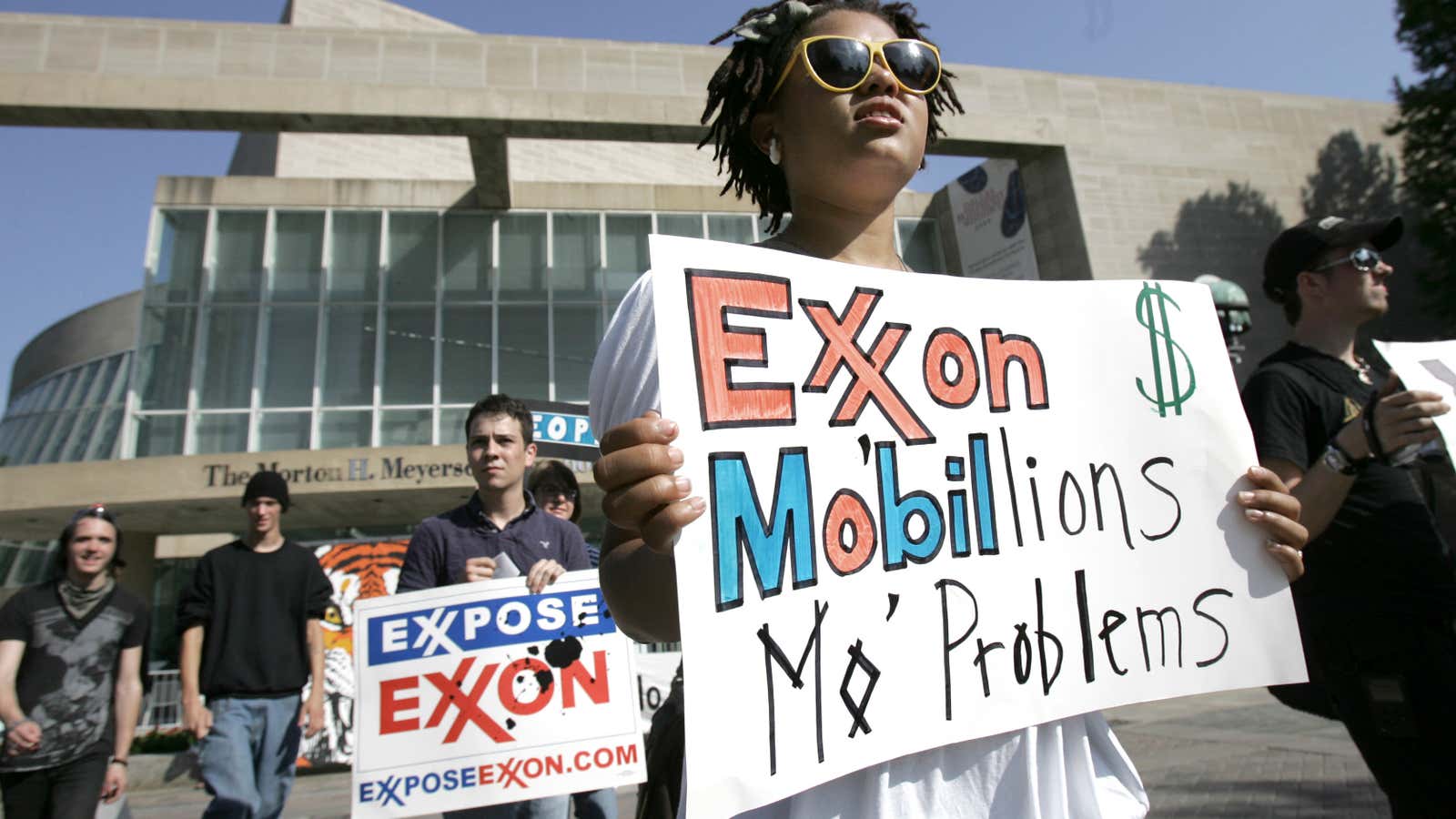John D. Rockefeller made his fortune in the oil industry. Some 80 years after his death, organizations that trace their history to his wealth—ExxonMobil and two Rockefeller philanthropies—are going head-to-head in twisted, high-profile court cases on climate change.
In the past few years, Exxon has been hit by a series of lawsuits. In one way or another, they all claim that the company knowingly misled shareholders and the wider public about the risks posed by climate change, which is caused by greenhouse-gas emissions from the burning of fossil fuels.
The plaintiffs in the cases include two states (New York and Massachusetts) and many cities (including New York City, San Francisco, and Oakland). If the plaintiffs succeed, the oil giant may have to pay billions of dollars in damages.
Exxon denies the allegations. In its defense, it said in a January filing (pdf), the company “has long acknowledged the risks presented by climate change, supported the Paris climate accords, and backed a revenue-neutral carbon tax.” It goes on to add that the company is being “targeted by state and local governments for pretextual investigations and litigation intended to cleanse the public square of alternative viewpoints.”
“The attorneys general have violated ExxonMobil’s right to participate in the national conversation about how to address the risks presented by climate change,” Dan Toal, a lawyer who represents Exxon, told Bloomberg. “That is the speech at issue here—not some straw man argument about whether climate change is real.”
Where things get interesting is that Exxon is claiming it is the victim of a “conspiracy” which was hatched in a meeting in 2012 held in an oceanfront cottage in La Jolla, California. The meeting was hosted by organizations backed by the Rockefeller Brothers Fund (RBF). Lawyers and scholars gathered to learn from the litigation strategies applied in the fight against the tobacco industry’s misinformation campaigns, and apply them to “address climate change.”
Exxon is going after individuals involved in the La Jolla meeting and others involved in cases against the company. In a deposition made in January, the company said it wants testimony from 15 municipal lawyers and officials in California to find evidence that could support an “anticipated lawsuit” claiming “civil conspiracy, and violations of ExxonMobil’s constitutional rights.”
This is the second time ExxonMobil has claimed to be the victim of a conspiracy based on meetings supported by a Rockefeller philanthropy. Quartz has reached out to Exxon for comment and will update this post if necessary.
In 2016, the Rockefeller Family Foundation (RFF) hosted a meeting of public-interest advocates in its office. A participant at the meeting later sent an email that cited “common goals” that included “to establish in [the] public’s mind that Exxon is a corrupt institution that has pushed humanity (and all creation) toward climate chaos and grave harm” and “to delegitimize them as a political actor.”
When Exxon suggested that meeting was a conspiracy, David Kaiser, a trustee of RFF, and Lee Wasserman, the director of RFF, called the claim “absurd” in the New York Review of Books. “While we consider Exxon’s actions immoral, we have no particular interest in persuading the public that the company is corrupt,” they wrote. “Otherwise, however, we don’t think the email said or suggested anything that is far from the truth.”
Not everyone is convinced of Exxon’s case. ”People often try to use litigation to change the cultural conversation,” Alexandra Lahav, a professor at the University of Connecticut School of Law, told Bloomberg. “Exxon is positioning itself as a victim rather than a perpetrator.”
